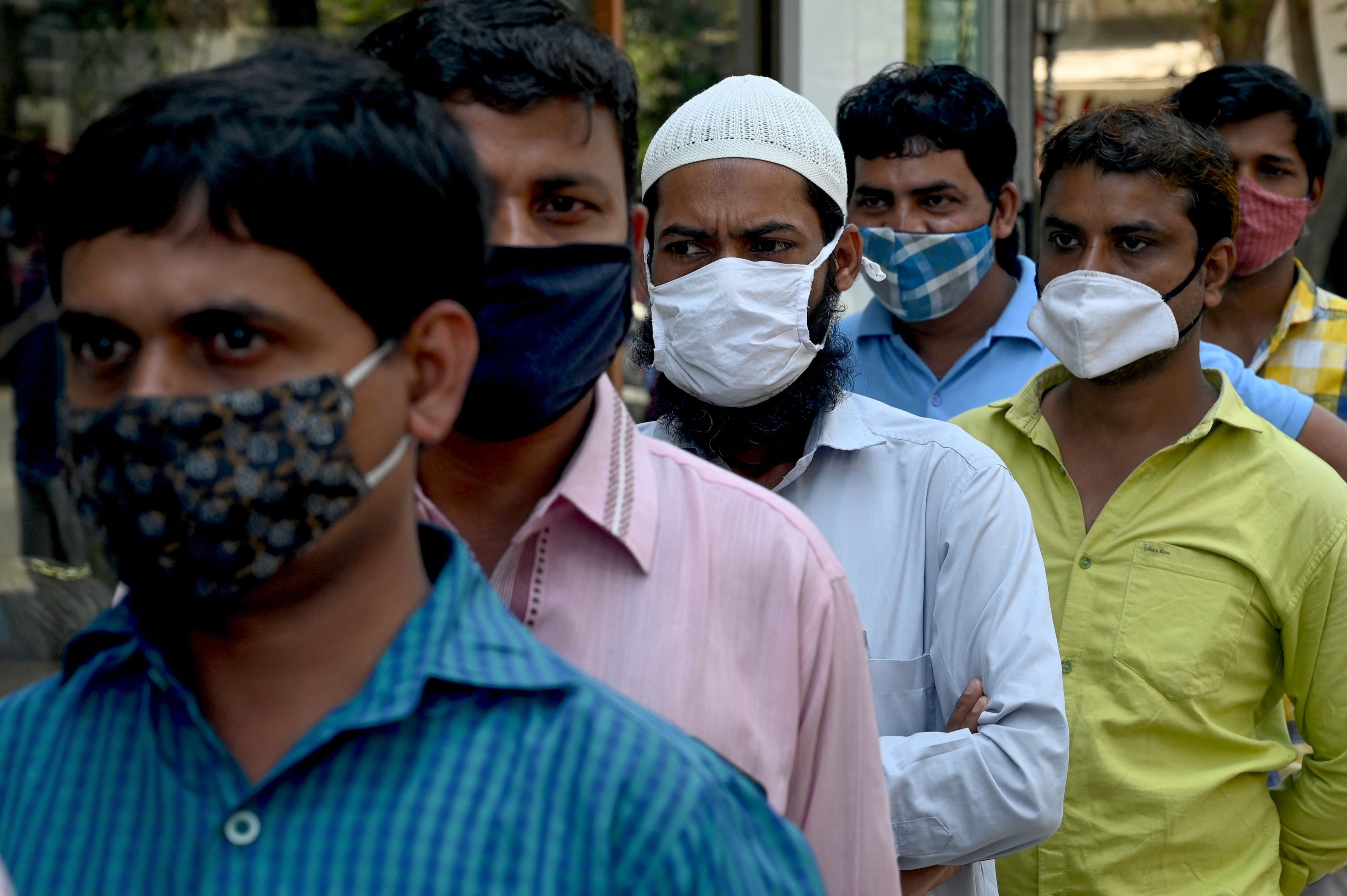Delhi reduces Covid tests even as infections surge, leading to warning from doctors
Overburdened labs, infection among staff, and backlogs are said to be reasons for low testing rates

Coronavirus testing rates have dropped significantly in the Indian capital Delhi in the past week despite infection rates surging.
From almost 100,000 tests being conducted every day 10 days ago, the testing rate dropped to 57,000 tests on Monday, according to the latest figures, while the positivity rate remained at 31 per cent.
The decline in testing in Delhi is in line with the nationwide drop in testing which dropped from almost 1.7 million tests on 24 April to 1.6 million on 26 April.
Speaking to The Independent, a public health expert from Bengaluru, Dr Oommen John, said testing is “extremely critical to understand the transmission dynamics” and reducing it could hamper India’s fight against Covid.
“There is an urgent need to expand the range of tests and incorporate validated rapid antigen tests (RAT). The decline in testing could be due to a surge in the demand,” Mr John, who worked with the World Health Organisation (WHO) on vaccine development, said.
Doctors in Delhi are moving forward with putting patients on Covid-19 treatment following symptoms because labs are taking more than three days to declare the results or just simply declining testing.
“Anybody who has Covid-like symptoms should isolate themselves and take treatment as if they are positive,” Dr. Srinivas Rajkumar, former general secretary at India’s premier All India Institute of Medical Sciences (AIIMS) in Delhi, told The Independent.
He said a lack of manpower, infection among staff and a mounting backlog of samples are some of the reasons for delay.
The government-owned Aiims hospital, Delhi, suspended contact tracing of healthcare workers due to “insufficient resources” and “shortage of staff” amid surging cases.
India has so far confirmed 197,000 deaths and 17.6 million cases – more than three million added in just two weeks.
The testing rate has declined in the capital as the city is reeling with a wave of infections, adding more than 20,000 cases daily, taking the total close to one million cases with more than 14,000 deaths. The hospitals are turning away patients due to a shortage of healthcare infrastructure. The one-week lockdown was extended for a second time on Sunday.
The country is testing 43,888 people per million in comparison to Denmark that had conducted almost 400,000 tests per million.
Dr Srinivas said “premature celebration” and denial by the central government is to be blamed for the crisis situation of India. “Even doctors don’t get a bed to get admitted. It’s chaos on the ground,” he added.
Dr John suggested testing should be conducted fiercely and it should be expanded by way of approving a range of rapid antigen tests as they would prove effective in rural areas where access to more accurate RT PCR tests are likely to be a challenge.
“Another advantage of RDTs is that they can be easily administered closer to where the populations live,” he added.
Join our commenting forum
Join thought-provoking conversations, follow other Independent readers and see their replies
Comments
Bookmark popover
Removed from bookmarks